Asia Business Law Journal names the top firms in Japan. Lim Miran and Elverina Hidayati report
A robust export sector and strong internal economy have helped weather global storms encroaching Japan in recent years. Although uncertainty in the world economy and international trade will impact the short to medium-term financial future, the country continues tenaciously sailing through the tempest, and the role of legal counsel has become more important than ever before.
Like many other countries, Japan is not immune to inflationary pressures caused by significant rises in fuel and energy prices, which have a direct impact on food import costs and helped pushed the inflation rate to 2.5{e421c4d081ed1e1efd2d9b9e397159b409f6f1af1639f2363bfecd2822ec732a}, well above the Bank of Japan’s estimation of 2{e421c4d081ed1e1efd2d9b9e397159b409f6f1af1639f2363bfecd2822ec732a}. The government predicts the economy will grow only 2{e421c4d081ed1e1efd2d9b9e397159b409f6f1af1639f2363bfecd2822ec732a} year-on-year in 2022.
However, the UN Conference on Trade and Development’s World Investment Report 2022 notes that foreign direct investment outflows from Japan in 2021 rose by 53{e421c4d081ed1e1efd2d9b9e397159b409f6f1af1639f2363bfecd2822ec732a} to USD147 billion compared to the previous year, making it the third-largest investor country. On the other hand, Asia’s powerhouse faces fierce competition in rapidly growing sectors such as electric vehicles, semiconductors, electronics and energy.
The government’s Basic Policy on Economic and Fiscal Management and Reform, issued in June, mentions investment in startup industries as one of five focus areas, with the aim of increasing total startup fundraising to 10 times its current size within the next five years.
All of these macroeconomic factors have impacted businesses in Japan, and the fast-moving pace of change in the global economy of late has made it imperative for Japanese businesses to react with agility. At the heart of this nimbleness is trusted legal processing and advice, enabling effective navigation through dense Japanese regulation.
Similar to Japanese companies, law firms are also expanding their presence abroad. Many are steadily expanding their Southeast Asia networks and also extending further afield to Europe and North America.
In recognition of these law firms, Asia Business Law Journal is choosing to celebrate the most important practices in the nation with its inaugural Japan Law Firm Awards. Identifying the top four law firms in Japan, we have chosen the best of the best as our overall winner, followed by 24 firms each coming top in their respective categories.
Nishimura & Asahi
Nishimura & Asahi is a full-service law firm well known for handling major domestic merger cases, as well as merger filings for cross-border and offshore M&A transactions. Founded in 1966 by Toshiro Nishimura, the firm has a long history of working with clients across Japan. In 2007, the firm merged with Tokiwa Sogo Law Offices, taking on the name they have today.
Led by the managing partner Ryutaro Nakayama, the firm also assists banks and financial institutions to resolve their issues in the Japanese legal system. Nishimura & Asahi has expanded its more than 700-member team to include more Japanese and non-Japanese lawyers across the country, in addition to its international offices in mainland China, Hong Kong, Taiwan, Southeast Asia, Dubai, New York and Frankfurt.
Nishimura & Asahi recently advised Honda Motor on its agreement with South Korea’s LG Energy Solution to establish a joint venture company producing lithium-ion batteries in the US to power Honda and Acura electric vehicle models for the North American market. The firm also advised American private investment firm Bain Capital on its acquisition of Evident Corporation, a subsidiary of Olympus Corporation that makes and sells precision machinery and instruments.
Last year, the firm acted as an adviser for Hitachi Metals on a USD7.27 billion M&A transaction that included a tender offer for Hitachi Metals’ shares held by general public shareholders, one of the largest M&A transactions acquiring a Japanese company by private equity.
“Nishimura & Asahi is no doubt the best law firm in Japan, offering top-class legal advice and support in a wide range of areas with star lawyers in every area,” says Tsuyoshi Harada, head of legal division at Nippon Steel Corporation in Tokyo.
Kazuhiro Yamada, the managing director and representative in Japan at private equity firm The Carlyle Group in Tokyo, has high regard for Nishimura & Asahi, especially partner Hiroshi Uchima.
“Uchima and his team always provide high-quality legal advice and informative suggestions with deep insight,” says Yamada. “The firm not only gives legal advice but also provides solutions for our transactions. They have a variety of excellent talent who have lots of experience with different backgrounds.”
Anderson Mori & Tomotsune was founded in 1952 and became renowned for serving overseas companies doing business in Japan, while Tomotsune & Kimura, established in 1967, was well-known for international financial transactions. Both merged in 2005 to form Anderson Mori & Tomotsune, as they are known today. In 2007, they also merged with Bingham Sakai Mimura Aizawa, which specialised in international finance insolvency and restructuring, and crisis management.
The firm has its main offices in Tokyo with branches in Osaka and Nagoya, in addition to international offices in Beijing, Shanghai, Singapore, Ho Chi Minh City and Bangkok, with associated firms in Hong Kong, Jakarta and Singapore. In early September, Anderson Mori & Tomotsune also opened its first European office in London, led by partner Atsutoshi Maeda, who previously served as co-head of the Singapore office.
Recently, Anderson Mori & Tomotsune advised Slack Technologies on its proposed acquisition by Salesforce for USD27.7 billion in cash and stock. Another highlight was acting as an adviser for a consortium of banks on funding a USD24.2 billion acquisition and refinancing on mega-solar projects sponsored by Sonnedix Japan KK, a developer, asset manager and operator of mega-solar projects in Japan.
Established in 2000, Nagashima Ohno & Tsunematsu is a merger of Nagashima & Ohno and Tsunematsu Yanase & Sekine. The firm has since become one of the biggest law firms in the country with more than 500 lawyers, including 40 attorneys from various jurisdictions outside Japan. The firm has also expanded internationally with offices in New York, Shanghai, Singapore, Bangkok, Ho Chi Minh City and Hanoi.
With legal services headquartered in Tokyo, the firm is led by managing partners Fumihide Sugimoto and Hiroki Inoue, handling a wide range of domestic and cross-border matters, including some of Japan’s most significant and complex transactions.
Nagashima Ohno & Tsunematsu is best known for its work in the banking regulatory sector, with an emphasis on structured and real estate financing. In the past 20 years, the firm also advised on other high-value acquisition finance deals. Their major clients include domestic lenders and investors, as well as international financial institutions such as MUFG Bank, Lone Star Funds and Sumitomo Mitsui Banking Corporation.
The firm recently advised Hong Kong investment company PAG on its USD720 million purchase of theme park Huis Ten Bosch from Japanese travel booking service provider HIS. It also successfully acted as counsel for MUFG Bank as a lender in Nippon Telegraph and Telephone Corporation’s JPY1.5 trillion (USD10 billion) acquisition of Japanese mobile phone operator NTT Docomo.
Mori Hamada & Matsumoto has been serving clients in Japan and internationally since 2002, when it was established by the merger of Mori Sogo and Hamada & Matsumoto. Three years later, Mori Hamada & Matsumoto merged with Max Law Office and has grown steadily since.
Headquartered in Tokyo, Mori Hamada & Matsumoto has strong full-service local law practices in Thailand and Myanmar through its local offices, Chandler MHM in Bangkok and Myanmar Legal MHM in Yangon, in addition to overseas offices in Beijing, Shanghai and Singapore.
In January this year, the firm opened an office in Hanoi, in addition to its Ho Chi Minh City office that opened in 2018, and has been recruiting local lawyers to expand its Vietnam practice. The firm also recently formed a business alliance with a newly established Indonesian law firm, ATD Law, in Jakarta, which will come into force in 2023.
The firm now has more than 670 lawyers and 590 staff led by managing partners Koichiro Iida, Gaku Ishiwata and Yuto Matsumura to serve its numerous key clients from Shiseido Company, Yayoi Kusama Memorial Art Foundation and Japan Football Association to the digital platform operator Yahoo.
Last year, the firm assisted Tokyo-based Z Holdings, the parent company of Yahoo! Japan, in a merger with messaging app operator Line to create the biggest information technology company in the country.
GI&T Law Office was established in 2020 by executive partner Kengo Nishigaki, a former partner at Baker McKenzie Japan who specialises in fraud investigations. The firm specialises in compliance, dispute resolution, international arbitration, employment, healthcare and investigation matters.
Based in Tokyo, GI&T Law Office has three partners and three associates to serve the growing needs of its international network in Indonesia, Thailand and China. Recently, the firm represented three listed Japanese companies to establish their global whistleblower systems, requiring compliance with the EU’s General Data Protection Regulation (GDPR) and other regulations in more than 30 jurisdictions.
“GI&T Law Office has in-depth expertise in the highly regulated healthcare industry and the relevant authorities’ guidance, defining its unique position and distinguishing it from other law firms,” says Mihoko Kawamizu, head of legal and compliance at Philips Japan in Tokyo. “Our business constantly faces unprecedented complex matters and teaming up with GI&T Law Office is the foundation to create solutions in such challenging environments.”
Katsumi Kojima, chairman of the legal and compliance committee of the American Medical Devices and Diagnostics Manufacturers’ Association in Tokyo, says the association has been working closely with Nishigaki in organising compliance training sessions for the past decade.
“Kengo Nishigaki is a trusted professional lawyer and a pioneer of anti-corruption, especially of the US Foreign Corrupt Practices Act in the Japanese market,” says Kojima. “His training sessions have been well received by our attendees, and the training sessions have really helped to enhance our ethical business environment in the healthcare sector.”
Melody Wang, a corporate legal attorney of global facilities and EHS legal counsel at Dell in Tokyo, has worked with GI&T Law Office on numerous occasions and says this about the firm: “Kengo and his team are highly skilled, responsive legal advisers and we are truly appreciative of their assistance in helping Dell successfully conclude multiple real estate transactions in a complex business environment.”
Atsumi & Sakai was founded in 1994 as Atsumi & Usui and changed its name to Atsumi & Partners in 2003. Two years later, the firm become the first in Japan to create a foreign law joint venture and changed its name to Atsumi & Sakai.
Senior partner Hiroo Atsumi is recognised as one of Japan’s leading finance lawyers, with extensive experience in banking, capital markets and asset finance. Another senior partner, Yutaka Sakai, focuses on securitisation, project finance, ship finance, aircraft leasing, syndicated loans and environmental law.
In 2011, Atsumi & Sakai formed a partnership with Vietnamese law firm A-PAC International. Three years later, the firm expanded its presence in Europe by opening a Berlin affiliate office, which relocated to Frankfurt in 2015, while also opening a London office. Earlier last year, the firm opened its New York office.
Atsumi & Sakai has built up an extensive track record in various types of aircraft and ship finance deals, including Japanese operating lease and Japanese operating lease with call option for aircraft, aircraft engines and ships.
The history of international law firm Baker McKenzie in Japan can be traced back to 1972, when Tokyo Aoyama Law Office was first established as its associate office, making it one of the oldest international law firms with an office in Japan. In late 2012, the firm changed its name to Baker McKenzie (Gaikokuho Joint Enterprise).
Gaikokuho joint enterprise means an enterprise jointly run by a lawyer from a foreign country licensed to practise law in Japan (gaikokuho-jimu-bengoshi) and a Japanese lawyer (bengoshi), or a gaikokuho-jimu-bengoshi and a legal profession corporation under a continuous contract for performing legal business.
Co-managing partners Akifusa Takada and Gavin Raftery lead the Tokyo office comprising more than 150 lawyers.
Recently, the firm was selected by Japan Aerospace Exploration Agency to be a member of a consortium that will engage in the incubation of a new commercial space economy in low-earth orbit. The consortium will consider entire business models in transportation, including cargo and crew transportation, space utilisation, and return to earth.
TMI Associates has grown significantly from 11 initial lawyers when established in 1990 to more than 570 lawyers as of late 2022. Founded by senior managing partner Katsuro Tanaka, the firm has expanded internationally, opening offices in Shanghai, Beijing, Hanoi, Ho Chi Minh City, Yangon, Bangkok, Phnom Penh, Singapore, Silicon Valley and London. It also has international desks that focus on Brazil, France, India, Indonesia, Kenya, Malaysia and the Philippines.
TMI Associates has been involved in many practical cases to support space businesses in Japan, in addition to regularly working on an array of aviation matters, including aircraft portfolio transactions, lease restructuring, sales and leaseback matters.
“TMI is an excellent firm, and we have had wonderful experiences working with [partner] Shunji Sato,” says John Eastwood, managing partner at Eiger in Taipei.
Former judge and member of the Japan Fair Trade Commission, Ichiro Irie, founded Hibiya Sogo Law Office in 1960 with a focus on antitrust law. The firm also assisted multiple clients with administrative cases, criminal cases and civil cases, as well as international cartel cases, US antitrust laws and EU competition laws.
The firm is now led by managing partner Tsutomu Nakato, who focuses on anti-competition investigations. Supported by 12 partners and five associates, the firm also handles a wide range of litigation cases related to corporate disputes, bankruptcy trustees, civil rehabilitation cases and general civil disputes.
International law firm White & Case opened its Tokyo office in 1987 and established a joint enterprise with Japan-licensed attorneys in 1995. The foreign law firm is known for corporate, finance, antitrust, IP and real estate matters.
The Tokyo office is led by partner and co-head of corporate/M&A practice Jun Usami, who has a strong track record in cross-border work, from mid-market to large complex deals.
Last year, the firm advised PayPal Holdings on its JPY300 billion (USD2.7 billion) acquisition of Paidy, a Japanese online payments platform. The firm also advised private equity firm CVC Capital Partners on financing the USD1.5 billion acquisition of the personal care business of Japanese multinational cosmetic company Shiseido.
City-Yuwa Partners was formed in 2003 from the merger of Yuwa Partners and the Law Department of Tokyo City Law & Tax Partners to offer general corporate issues, from M&A to civil and commercial litigation, and bankruptcy. Two years later, the firm merged with patent litigation firm Ohba Ozaki & Shimasue.
Managing partners Masato Kobayashi, Haruyuki Hirata, Yasuyuki Kuribayashi, Arata Nomoto, Mika Okada, Tomohiro Tanamura and Yuichi Maruyama helm the firm comprising more than 160 Japanese and international lawyers. In a bid to widen its coverage in the region, the firm acquired a China and Vietnam-focused boutique firm of nine lawyers, Soga Law Office, which is expected to join in early 2023.
In the ever-changing technology and digital businesses, City-Yuwa has been actively supporting its Japanese clients and their overseas entities with legal advice related to personal information protection, while providing assistance for multinational companies on the Japan Act on the Protection of Personal Information.
Magic circle law firm Allen & Overy established an office in Tokyo in 1988 to focus on corporate and M&A, projects, energy, natural resources and infrastructure, and banking and finance. In Japan, the firm is well known for its market-leading strength in international projects, handling a full range of cross-border energy, infrastructure and financing matters for major Japanese corporations.
Matthias Voss is managing partner for the Tokyo and Seoul offices, as well as co-founder of the firm’s hydrogen interest group. He has been advising on various clean energy projects and offshore wind projects worldwide, including Japan, Taiwan, the UK, South Africa and mainland China.
IP specialist law firm Ohno & Partners was established in Tokyo in 2000 by managing partner Seiji Ohno. The firm has represented many complex cases in information technology, semiconductor, biotechnology, bioinformatics, nanotechnology, environmental technology, and other cross-industrial technologies.
Since its establishment, the firm has worked closely with clients to provide total solutions related to IP from patent examinations and applications, patent management, patent litigation, and contract review. Over the past 12 months, the firm has hired two new patent attorneys and an attorney at law.
Taiyo Nakajima & Kato was established in 1981 in Tokyo by patent lawyer Jun Nakajima with only three staff. In the past 40 years, the firm has tripled in size and expanded to nearly 200 staff, with branch offices in Yokohama, Seoul and the US state of Virginia, led by senior partner and executive director Takaharu Nakajima.
The firm handles more than 3,500 domestic patent applications every year, involving 80 Japanese patent attorneys including those registered in the US, China and South Korea. The firm also provides support to clients planning to engage in technology transfer in Japan.
Labour and employment-focused law firm Daiichi Fuyo Law Office was founded in 1986 by the late Momotaro Takeuchi, initially with six lawyers, and has grown into 19 lawyers, including 10 partners.
The firm is now led by managing partner Shione Kinoshita, who has been a member of the board of directors of the Japan Labour Law Association’s Board since 2014. Daiichi Fuyo Law Office has been involved in numerous labour cases related to collective bargaining, labour management and litigation at all levels from district and high courts to the Supreme Court of Japan.
Vanguard Lawyers Tokyo founded in 2017 specialising in employment law, dispute resolution, financial regulatory matters, life science and corporate matters. Co-founded by senior adviser Naoki Kinami and partner Akira Nakazawa, the firm now has three partners and 12 associates.
Each partner has more than 20 years’ experience supporting multinational corporations doing business in Japan. Vanguard Lawyers Tokyo regularly deals with local in-house counsel and human resource professionals across the US, UK, Europe, Hong Kong and Singapore.
Morrison & Foerster opened its Tokyo office in 1987 and has become one of the most diverse international law firms in Japan, with 60 US and 60 Japanese lawyers.
Kenneth Siegel and Masahiro Shiga are managing partners for the Tokyo office, while continuing to advise both domestic and multinational corporations on highly complex real estate acquisitions and financing.
In the past 12 months, the firm bolstered its litigation department with the hire of former judge Takahiro Nonaka, who focuses on cross-border commercial litigation, investigations and compliance issues, including anti-corruption and antitrust.
The firm regularly works on inbound and outbound transactions, advising SoftBank, Hitachi, Fujitsu and Toshiba. Recent high-profile transactions include providing antitrust-related advice for Toshiba’s USD18 billion sale of its wholly-owned subsidiary, Toshiba Memory Corporation, to a consortium led by Bain Capital.
Boutique law firm southgate was founded in 2016 to focus on cross-border M&A and venture capital. The founding partners, US-qualified Eric Marcks and Japan-qualified Mangyo Kinoshita, combine their experiences to operate like an international firm with Japanese law capabilities.
Operating independently without constraint by a global network or law firm alliance, the firm now has four partners providing legal counsel with international standards not only for large-cap cross-border M&A deals, but also small and mid-cap cross-border deals that are being overlooked by today’s legal market in Japan.
“Having worked with southgate on a variety of cross-border mandates, I have really enjoyed working with them,” says Anirudh Rastogi, managing partner at Ikigai Law in New Delhi. He praises their “excellent project management, timeliness and professionalism”.
- Greenberg Traurig
- Nagashima Ohno & Tsunematsu
- Nishimura & Asahi
- Withers
American multinational law firm Greenberg Traurig opened its office in Tokyo in 2015, responding to the international business community’s growing interest in Japan. The firm offers multidisciplinary legal strategies spanning multiple industries for clients undertaking cross-border transactions and ventures.
The Tokyo office is led by managing partner Koji Ishikawa, while partners Yuji Ogiwara and Koichiro Ohashi co-chair the Japan practice. In the past two years, the firm has been actively building its Japan real estate offering, including the hire of real estate lawyer Mori Inada as a partner in early 2021.
Recently, Greenberg Traurig advised asset management firm GI Capital Management in the development of a new five-star luxury hotel in Kyoto, which is slated to be the first Regent-branded hotel in Japan and valued at more than USD135 million.
Withers opened its Tokyo office in 2015 as Withers Japan Zeirishi Jimusho (tax accountant office), focused on providing tax advice for international clients. As the office expanded its investment management and real estate offerings in 2018, the firm changed its operation to a foreign law joint enterprise between Withers Gaikokuhou Jimu Bengoshi Houjin (corporation of registered foreign lawyers) and Withers Bengoshi Houjin (corporation of Japanese lawyers), while keeping the tax office as an affiliated entity.
Led by partner Eric Roose, the eight-partner office offers advice on investment funds, real estate and tax, as well as assisting clients at all stages of inbound and outbound real estate investment.
Recently, the firm represented investment manager Nuveen Real Estate in establishing its Japan Alternatives Living fund, with participation from institutional real estate investors Bouwinvest and financial services organisation TIAA. The fund will primarily target senior housing assets and may also pursue investments across alternative living sectors such as student housing, co-living and single-family opportunities across Greater Tokyo, Osaka and Nagoya.
Established in 1959, Abe Ikubo & Katayama was founded by partner Shogo Abe as Ginza Law Office. The firm changed its name to Abe Ikubo & Katayama in 1991, a few years after partners Yasuhiko Ikubo and Eiji Katayama joined, and the trio have been representative and managing partners ever since.
The founder, Abe, is well known for his work in insolvency and restructuring, while Ikubo and Katayama’s practices cover international and corporate matters, with a focus on IP and bankruptcy law. In 2000, the firm established an IP division and enhanced its patent application and prosecution services.
- Hiratsuka & Co
- Max Law Office
- Norton Rose Fulbright
- Yoshida & Partners
Hiratsuka & Co was founded in 1976 by maritime law expert and senior partner Makoto Hiratsuka. The full-service law firm provides a whole spectrum of legal services with particular focus on shipping, insurance and reinsurance, international trade and international arbitration.
In shipping matters, Hiratsuka & Co has advised on various high-profile cases from collisions, groundings, pollution, salvage and damage to marine facilities, bills of lading and sea waybills, charter parties, contracts of affreightment, ship management, shipbuilding, sale and purchase of ships, marine insurance, ship arrests and releases. Last year, Hiratsuka & Co team successfully defended the reinsurers in a reinsurance dispute regarding the Deepwater Horizon oil spill case.
Max Law Office specialises in maritime law for shipping companies and protection and indemnity clubs. The firm also provides admiralty and forum shopping advice and legal services related to trading disputes, letters of credit disputes, commodities and aviation.
Led by partners Takayuki Matsui and Rie Akiba, the firm is also supported by its worldwide international network. Matsui, who has been at the firm for more than 25 years, focuses on collisions, cargo defence, personal injury, arrest and maritime disputes.
International law firm Norton Rose Fulbright opened its Tokyo office in 2008 providing a wide range of legal services in banking, energy, infrastructure and transport matters. The head of the Tokyo office, George Gibson, specialises in the development, financing and acquisition and disposal of infrastructure and energy-related projects, especially in emerging markets.
Supported by its global network, the firm offers a full range of legal services for any shipping-related matters, from the most complex structured finance to anti-competitive actions, ship conversion disputes and offshore disputes.
Yoshida & Partners was established in Kobe in 1924 by the late Seizo Yoshida, a maritime lawyer. In 1969, partner Yoichi Ogawa joined the firm and accelerated growth in the marine casualty area, representing Japanese shipowners and underwriters in numerous major cases.
The firm specialises in foreign and domestic maritime and commercial matters, including shipping, trade and commercial transactions, primarily as an agent for shipowners, charterers and insurance companies. With seven attorneys at law, two maritime counsellors and an adviser, the firm serves overseas and multinational shipowners, operators, trading houses and financial institutions.
- Clifford Chance
- Linklaters
- Nagashima Ohno & Tsunematsu
- Nishimura & Asahi
Clifford Chance set up its Tokyo office in 1987 and fully integrated its practices with Japanese and foreign lawyers to serve clients on inbound and outbound transactions. The firm has top-ranked teams across capital markets, corporate, finance, litigation and dispute resolution practices.
The office is led by Reiko Sakimura and Lai Leng-Fong as co-managing partners. With a proactive approach to clients, Clifford Chance has a longstanding relationship with Japanese companies, banks and institutions.
Among notable representations this year, Clifford Chance advised Japan Bank for International Cooperation on acquiring USD110 million equity in NuScale Power, which designs and markets small modular reactors for nuclear generation capable of generating up to 300MW of electrical power.
- Baker McKenzie
- Jones Day
- Nishimura & Asahi
- Withers
Since opening its Tokyo office in 1989, the American multinational law firm Jones Day has served numerous clients in outbound acquisitions and global transactions involving assets in Japan.
In January 2002, Jones Day merged with Japanese firm Showa Law Office and has steadily grown to serve diverse legal needs related to commercial and IP litigation, antitrust, government regulation and tax practices. The Tokyo team is led by partners Chris Ahern, Hiromitsu Miyakawa, Maxwell Fox and Katsumi Shirai.
With its international talent, the firm’s tax lawyers offer comprehensive and integrated advice handling client tax controversy matters from audit to appeals, and in court.
The firm recently acted as adviser to IMCD NV, a Netherlands company specialised in chemical and food ingredients, in the acquisition by its subsidiary IMCD Japan of speciality distribution company Kuni Chemical.
Linklaters established its Tokyo office in 1987 and has been advising many of Japan’s most significant cases related to M&A, private equity, banking, financial market regulations, project and infrastructure, and real estate. The firm is well known for its ability to create innovation of securitisation and derivatives on domestic and multi-jurisdictional transactions.
Managing partner Peter Frost has led many major capital markets transactions such as convertible bonds issued by LINE Corporation, Sony Corporation, Asics, Shizuoka Bank and Cosmo Energy Holdings.
The firm’s integrated teams have expertise in advising on the tax aspects of corporate transactions. The firm regularly advises on tax issues that are key to structuring domestic and cross-border investments, including for funds and financial investor clients.
Their latest prominent representation included acting as an advisor to Morgan Stanley on the issue of zero coupon guaranteed convertible bonds due 2026 by gold refining company Asahi Refining USA.
- Atsumi & Sakai
- Nagashima Ohno & Tsunematsu
- Nishimura & Asahi
- TMI Associates
The judging process
The winners of Asia Business Law Journal’s Japan Law Firm Awards 2022 were selected based on the votes, references and qualitative information received from in-house counsel and other legal professionals in Japan and around the world.
A voting form was posted on our website, and thousands of in-house counsel, lawyers at international law firms, and other Japan-focused professionals were invited to vote. At the same time, Japanese law firms were asked to make submissions in support of their candidacy for the awards. These submissions, combined with research by Asia Business Law Journal’s editorial team, played a supporting role in the judging process.
All Japanese law firms were automatically eligible for inclusion in the awards process. As always, there were no fees or any other requirements for entry.
Japan is regarded as one of the least corrupt countries in Asia, ranked only behind Singapore and Hong Kong, and 18th globally on Transparency International’s Corruption Perceptions Index of perceived public sector corruption last year. However, the healthcare industry is an exception, with pharmaceutical and medical device companies facing growing scrutiny over “untransparent interactions” with healthcare professionals.
For more than a decade, the authors have helped international pharmaceutical and medical device companies operating in Japan to establish compliance programmes and conduct internal investigations. In this article, they explain from first-hand experience major legal and compliance risks for healthcare companies operating in Japan.
HIGH-PROFILE CASE
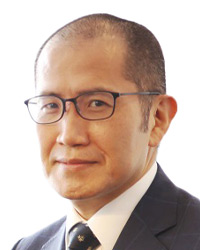
Representative Partner
GI&T Law Office in Tokyo
Tel: +81 3 6206 3285
Email: kengo.nishigaki@giandt-law.com
Staar Japan GK is the Japanese subsidiary of the US manufacturer of intraocular lenses for cataract surgery, Staar Surgical. In May 2022, it became known that the company had been paying eye doctors for providing surgical operation videos using their intraocular lenses. The company gave each sales representative a budget of JPY400,000 (USD2,700) to promote their products, paying JPY21.45 million in total to 75 doctors, including ones at public hospitals. One doctor alone received JPY2.2 million for seven videos. Staar Japan paid such compensation when doctors promised to use 50 to 100 lenses.
To compete with large device manufacturers, Staar Japan reportedly had to provide doctors financial benefits, using the ‘post-marketing surveillance’ videos to confirm the safety and efficacy of their healthcare products. Eventually, the company created a video campaign using the video data for internal training.
The Japan Fair Trade Council of the Medical Devices Industry (JFTC-MDI) subsequently issued a strict warning against Staar Japan, stating it violated the fair competition code, which prohibits paying unjustifiable premiums to healthcare professionals or institutions.
The council rarely discloses violators’ names in public, but this time it not only disclosed the name, but also publicised detailed facts of the case on YouTube. Instead of discussing the US Foreign Corrupt Practices Act or other extraterritorial laws, this article will only summarise Japanese anti-bribery laws and industry codes as they affect the healthcare industry.
RELEVANT ANTI-BRIBERY LAWS
The Penal Code of Japan provides for bribery offences in chapter 25 (articles 197 to 198), where both bribers and recipients are punished. Only bribery of public officials is criminalised.

Counsel
GI&T Law Office in Tokyo
Tel: +81 3 6206 3283
Email: andrew.griffin@giandt-law.com
Commercial bribery does not constitute a crime unless there are other offences such as breach of trust, that is when someone acting for another person acts in their own interest or that of a third party, or another person’s interests are harmed (article 247), or when a board member receives a bribe (article 967 of the Companies Act).
Public officials are clearly defined in Japanese laws. Some laws provide that persons who work for state-owned entities or conduct public duties shall be called “deemed public officials”, which usually includes healthcare professionals who work for public hospitals or universities.
Under the Penal Code, if anything of value is offered, given or promised to a public official in connection with the public official’s duties, a quid-pro-quo for the official’s action or inaction is not required.
However, if the bribe was given to a third party, rather than a public official, the prosecutor must establish a quid-pro-quo. For example, in 2021, two employees of Ono Pharmaceutical were arrested and convicted for providing a donation of JPY2 million to Mie University Hospital (a national university hospital) in exchange for increasing prescriptions of the company’s drug, Onoact. Since academic donations, called shogakukifu, are often made to healthcare professionals in university hospitals, this case caused a chilling effect in the industry.
Article 18 of the Unfair Competition Prevention Act criminalises foreign bribery with extraterritorial effect. In 1997, Japan signed the Organisation for Economic Co-operation and Development (OECD) Convention on Combating Bribery of Foreign Public Officials in International Business Transactions. However, the country has not actively enforced the law. There were only about 10 cases in 20 years, and the largest fine imposed was JPY90 million on Japan Transportation Consultants for bribery in Vietnam, Indonesia and Uzbekistan in 2015.
The OECD has urged the Ministry of Economy, Trade and Industry of Japan to amend the law and increase the stipulated penalties – the current maximum is JPY300 million, or just over USD2 million – extend the statutory period (currently five years), and expand the scope of exterritorial application (currently foreign nationals or companies are not subject to the law).
However, expanding the scope to foreign nationals or companies would be difficult to achieve, since an amendment to the extraterritorial application of the Penal Code under the Ministry of Justice is required.
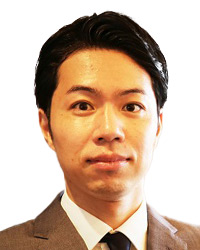
Associate
GI&T Law Office in Tokyo
Tel: +81 3 6206 3927
Email: yuji.yamamoto@giandt-law.com
The National Public Service Ethics Law and Ethics Codes is one of the most detailed ethics codes in the world, restricting government officials from receiving entertainment and gifts. But these rules apply only to national governmental officials (except parliament members and ministers), not to municipal officers or “deemed public officials”. However, municipal governments and public hospitals often establish ethics codes similar to the above-mentioned ethics law and codes.
Entertaining national governmental officials is also prohibited under this regulation. If persons have meals with them, the costs must be split. Further, if the cost exceeds JPY10,000 each, the official must report to ethics officers in advance.
However, officials can participate in buffets with 20 persons or more. Lunches up to JPY3,000 may be provided during normal meal times. Thus, healthcare companies may invite healthcare professionals to buffets at academic congresses, and provide lunch during product detailing meetings. But national governmental officers may not play golf or travel with such persons even if they split the costs. Interestingly, tennis, baseball, the Japanese board game “Go” and chess are allowed.
INDUSTRY CODES
The JFTC-MDI and Fair Trade Council of the Ethical Pharmaceutical Drugs Marketing Industry issue fair competition codes (FCCs) to regulate interactions with healthcare professionals. They are promulgated under the Act against Unjustifiable Premiums and Misleading Representations, a law to regulate unfair premiums. The FCC is an industry code prohibiting unjustifiable premiums to healthcare professionals and institutions, including meals, gifts, donations, direct sponsorship, post-marketing surveillance, provision of non-financial support, and manufacturer’s support in surgery rooms.
The JFTC-MDI has issued a 300-page explanatory commentary. But compliance officers will have to employ their deep understanding of the industry to interpret it. Some noteworthy regulations under the FCC include:
Meal allowances. Manufacturers may provide meals for commercial discussion purposes up to JPY10,000 per person. The pharmaceutical industry council’s FCC sets the limit at JPY5,000 per person and no pre-arranged meal is allowed, meaning that a sales representative must first start discussions with a healthcare professional before inviting one to a restaurant. Medical devices representatives often take healthcare professionals for meals, although pharmaceutical representatives rarely do.
Under both FCCs, healthcare professionals may have a meal within JPY20,000 for special occasions such as showing appreciation for presentations. But healthcare professionals cannot go for drinks or meals anywhere else after the first party, or nijikai, which means the second party that follows after the main party is over. At doctor detailing sessions, JPY3,000 meals are acceptable, usually a simple bento (Japanese-style packed meal).
Shogakukifu donation. Shogakukifu is a donation to university hospitals or academic congresses for research. Unlike charity, it is to promote research conducted by healthcare professionals. The FCC does not require a specific research topic; a general purpose such as cancer research is acceptable. But shogakukifu is often misused by manufacturers to promote sales at university hospitals, with healthcare professionals often requiring manufacturers to provide shogakukifu in return for including their products in hospital prescription lists.
For example, in another publicised case, a professor who was director of the clinical anesthesia department at Mie University Hospital asked Ono Pharmaceutical for shogakukifu to increase prescriptions.
Since then, some healthcare manufacturers have either abolished shogakukifu or established an independent donation committee. However, doctor awareness is still unchanged, university hospitals still rely on shogakukifu for research budgets, and manufacturers struggle to mitigate shogakukifu risks.
OTHER MAJOR CODES
The Japan Pharmaceutical Manufacturers Association has also issued a code of practice, and the Japan Federation of Medical Devices Associations has issued a promotional code for the medical device industry to promote ethical conduct.
Both of these industry organisations have transparency guidelines, requiring manufacturers to annually disclose any donations, research grants, speaker arrangements or meals provided to healthcare professionals and medical institutions.
Most recently, the American Medical Devices and Diagnostics Manufacturers’ Association, representing major US medical device companies operating in Japan, issued guidelines for ethical relationships with business partners, providing guidance for monitoring relationships with business partners, including distributors and agents.

GI&T LAW OFFICE
8/F Shin-Yurakucho Building
1-12-1 Yurakucho, Chiyoda-ku
Tokyo – 100-0006, Japan
Tel: +81 3 6206 3283




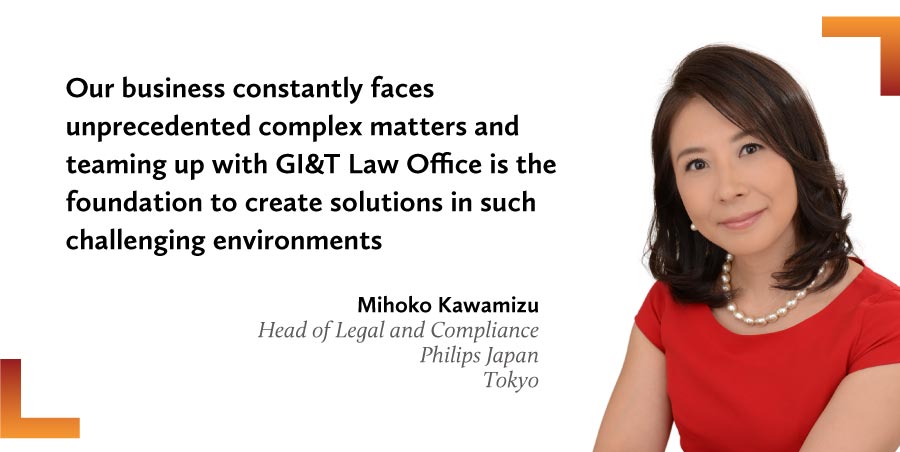
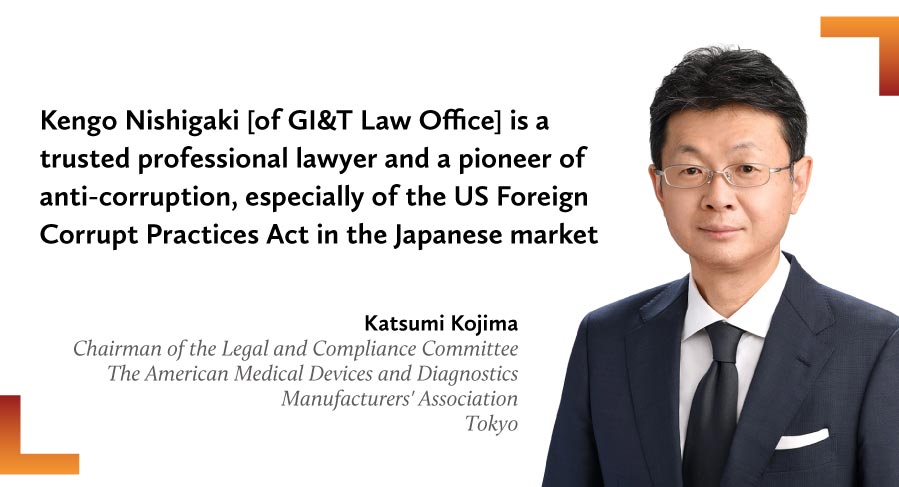

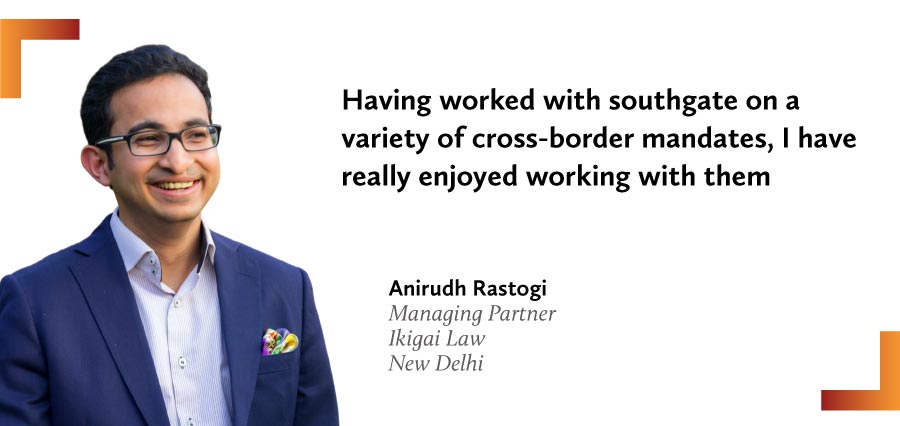

:max_bytes(150000):strip_icc():focal(749x0:751x2)/3-Teenage-Sisters-Killed-in-Rollover-Car-Crash-20221208_98-3ffd261965c548a6b698884daeaecbee.jpg)